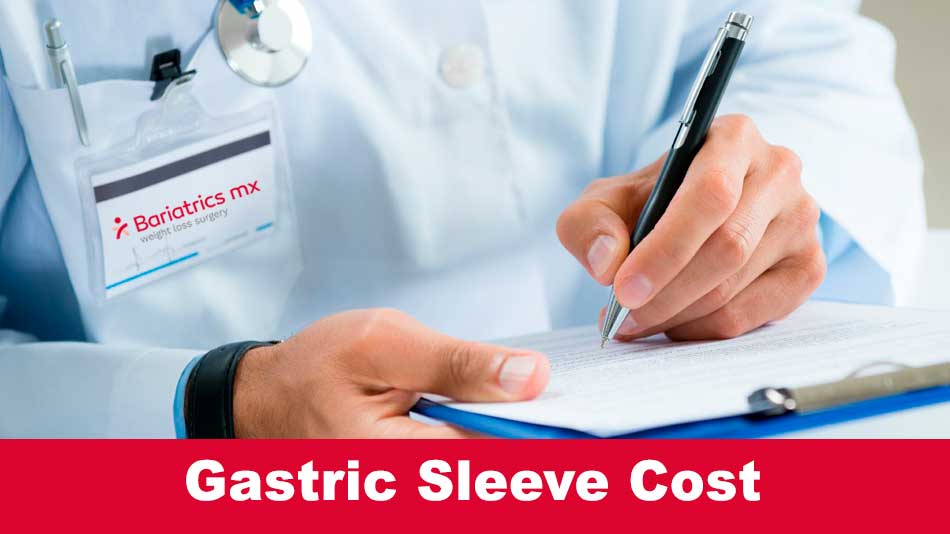Gastric Sleeve Cost
What you need to know about costs, financing and procedure guide
If you have been exploring different weight loss options and thinking about surgery, gastric sleeve surgery might consider it as one of your best options. It is one of the most recommended procedures for people struggling with obesity, and is known to help patients achieve long-term weight loss and better overall health. Here’s a detailed breakdown of everything you need to know about the surgery: costs, recovery and more.
What is gastric sleeve surgery?
Gastric sleeve surgery, often referred to as sleeve gastrectomy, is a type of weight loss surgery that focuses on reducing the size of the stomach. During the procedure, 75 to 80% of the stomach is removed, leaving a small sleeve-shaped section. The idea is that with a smaller stomach, you will naturally eat less because you will feel full more quickly, which will help you reduce your calorie intake and ultimately lose weight.
Another great benefit of this procedure is that it decreases the production of ghrelin, a hormone that triggers hunger. So not only is your stomach smaller, but your appetite also tends to decrease. This combination makes it easier to maintain healthier eating habits and achieve weight loss goals. The surgery is especially recommended for people who have not had long-term success with traditional weight loss methods, such as diet and exercise, and can also improve obesity-related conditions such as type 2 diabetes, high blood pressure and sleep apnea.
Who is a candidate for gastric sleeve?
Not everyone qualifies for gastric sleeve surgery, and that’s okay: it’s a big step and is reserved for those who really need it. Typically, the surgery is recommended for people with a BMI of 40 or higher, which is classified as severe obesity. However, it is also an option for people with a BMI between 35 and 39.9 if they have serious weight-related diseases, such as type 2 diabetes or hypertension.
But beyond the numbers, it is really about commitment. Patients who undergo this surgery must be totally willing to change their lifestyle over the long term to maintain their good results. That means following a new way of eating, incorporating more activity into their life and making sure to keep all follow-up medical appointments. This is not a one-time fix, but a tool that will help you lose weight on a lasting basis if you are willing to put in the effort.
How much does gastric sleeve surgery cost?
One of the biggest questions people have about gastric sleeve surgery is, “How much is it going to cost?” Well, the price can vary quite a bit depending on several factors, such as where the surgery is performed, the experience of your surgeon, and whether or not your insurance covers it. However, on average, gastric sleeve surgery in the U.S. costs between $9,000 and $25,000 U.S. dollars or in some cases costs even more.
What influences the cost?
- Location: Surgery costs can vary depending on where you are located. Urban areas or well-known clinics tend to charge more than smaller cities or lesser-known hospitals. Some patients even travel to other countries, such as Mexico, where surgery is more affordable most of the time.
- Surgeon experience: If you work with a very experienced surgeon who specializes in bariatric surgery, you may end up paying more. But, often, you will pay for better results and fewer risks which will have more benefits for your safety.
- Other expenses: Aside from the surgery itself, there are usually additional expenses for preoperative testing (such as lab work and additional diagnostics) and postoperative follow-up. These expenses can add up quickly, so it is worth asking your provider for a complete breakdown to get a more accurate cost.
Gastric sleeve surgery without insurance
The cost of gastric sleeve surgery in the U.S., if not covered by insurance, is usually between $9,000 and $25,000 U.S. dollars. However, it is important to remember that this is only the base cost of bariatric surgery. This does not include additional expenses that may arise such as pre-surgery tests, post-operative care and any complications that may arise during recovery. To get a clearer idea, let’s take a look at how these costs vary in different states in the USA:
Gastric sleeve surgery costs by State
| State | Average Cost |
|---|---|
| New York | $23,000 |
| California | $17,000 |
| Washington | $15,000 |
| Illinois | $17,000 |
| Texas | $16,000 |
| Florida | $15,000 |
| Oregon | $18,000 |
| New Jersey | $15,500 |
| Colorado | $12,000 |
Does insurance cover gastric sleeve surgery?
Yes, in many cases insurance covers the cost of gastric sleeve surgery, but only if it is deemed medically necessary. Usually this means that your doctor has determined that the surgery is crucial to improving your health, especially if you have a BMI of 40 or higher, or a BMI between 35 and 39.9 along with obesity-related health problems such as diabetes or hypertension.
Most insurers also want to see proof that you have tried other weight loss methods before resorting to surgery. They may require documentation that you have worked with a nutritionist, participated in a supervised diet or exercise program, or tried medications for at least six months without success. Each insurance company has its own guidelines, so it is a good idea to call your provider and ask what is covered and what the process consists of.
How to pay for gastric sleeve surgery
If your insurance doesn’t cover the full cost of the surgery, or if you have to pay out of pocket, don’t panic: there are options to help make the procedure more affordable. Here are some ways to manage the cost:
- Medical loans: many companies offer loans specifically for medical interventions, allowing you to pay for the operation in installments. Just shop around for the best interest rates and repayment terms.
- Payment plans: Some hospitals or clinics offer payment plans that allow you to pay for the operation over several months or even years.
- Health Savings Accounts (HSA): If you have an HSA, you may be able to use the funds to cover part or all of the surgery, which can help ease the financial burden.
Pros and cons of gastric sleeve surgery.
Gastric sleeve surgery has its pros and cons, just like any major surgery. Let’s break it down so you can decide if it’s right for you.
Pros:
- Significant weight loss: patients typically lose 50-70% of excess body weight within the first year after surgery. This weight loss often leads to improvements in obesity-related health conditions such as diabetes and high blood pressure.
- No foreign objects: Unlike gastric banding, the gastric sleeve does not involve the placement of any foreign device in the body. In addition, it does not require bypassing the intestines like gastric bypass, so there is less risk of complications.
- Reduced appetite: By removing part of the stomach that produces ghrelin, many patients find that their appetite decreases, making it easier to follow a healthier eating plan.
Cons:
- Permanent: This surgery is irreversible. Once that part of the stomach is removed, it is gone forever. So it is not a decision to be taken lightly.
- Nutritional deficiencies: With a smaller stomach, it may be more difficult for your body to absorb certain nutrients such as iron, calcium and vitamin B12. You may have to take supplements for the rest of your life to avoid deficiencies.
- Surgical risks: As with any surgery, there is always a risk of complications, such as infection, blood clots or leaks in the staple line.
- Sagging skin: when losing weight through this type of bariatric surgery your skin will be sagging because you will lose weight quickly and drastically.
Other alternatives to gastric sleeve
If you are unsure whether gastric sleeve surgery is right for you, don’t worry: there are several alternative options, both surgical and non-surgical.
Non-surgical options:
- Diet and exercise: In some cases, structured diet and exercise programs with professional counseling can lead to long-term weight loss without surgery.
- Weight-loss medications: Prescription medications, such as phentermine or liraglutide, can help control appetite and promote weight loss in some patients.
- Endoscopic sleeve gastroplasty: This is a new non-surgical option that reduces the size of the stomach without the need for incisions.
Surgical options:
- Gastric bypass: This is a more complex surgery that reduces the size of the stomach and bypasses part of the small intestine. It is usually more effective for weight loss, but carries greater risks.
- Adjustable gastric banding: It consists of placing a band around the upper part of the stomach to create a small pouch. It is less invasive, but weight loss is usually slower than with the gastric sleeve.
Preparing for gastric sleeve surgery
Before undergoing gastric sleeve surgery, your doctor will guide you through several steps to make sure you are fully prepared. You will probably have to undergo some medical evaluations, including blood tests, imaging and possibly a psychological evaluation to make sure you are emotionally prepared for the changes ahead.
You may also be placed on a preoperative diet, usually high in protein and low in carbohydrates, to help reduce the size of your liver and make the procedure easier and safer. It is also essential that you begin to make lifestyle changes, such as quitting smoking and reducing alcohol consumption, which can improve your chances of a smooth recovery.
How gastric sleeve surgery works
The gastric sleeve surgery itself usually lasts between 1 and 2 hours and is performed under general anesthesia. The surgeon will make several small incisions in the abdomen and use a laparoscope (a small camera) to guide the instruments. Approximately 75-80% of the stomach will be removed and the remaining part will be transformed into a narrow sleeve.
Once the operation is complete, the surgeon will use staples to close the sleeve and make sure everything is securely fastened. You will then spend a day or two in the hospital to recover and be monitored before being discharged.
Recovery from gastric sleeve surgery
Recovery from gastric sleeve surgery is a gradual process. For the first few weeks, you will follow a liquid-only diet, and over the next month, you will slowly move toward eating pureed foods and soft solids. During this time, you should avoid strenuous activity, but light walking is recommended to promote circulation and prevent clot formation.
Most patients are able to return to work after 2-4 weeks, depending on the nature of their work. Full recovery and return to normal activities usually occurs 6-8 weeks after surgery.
Postoperative diet
The postoperative diet is one of the most important components of your success. Immediately after surgery, you will start with clear liquids and, over a few weeks, gradually introduce soft, pureed foods. Eventually, you will reintroduce solid foods, but in much smaller portions.
It is essential to follow a high-protein, low-carbohydrate diet to promote healing and weight loss. You will also need to stay hydrated, but avoid drinking fluids with meals so as not to overfill your stomach. This new way of eating is a lifelong commitment and is essential to maintain weight loss.
Gastric sleeve surgery results
The results of gastric sleeve surgery can be transformative. Most patients lose 50 to 70% of their excess weight within 12 to 18 months, and many experience significant improvements in obesity-related diseases such as diabetes, high blood pressure and sleep apnea.
Beyond the physical changes, patients often report improvements in their overall quality of life, such as increased energy, better mobility and improved self-esteem. However, it is important to remember that while surgery can put you on the right track, long-term success depends on maintaining the healthy habits you acquire after surgery.
Possible risks and side effects of gastric sleeve surgery
Like any surgery, gastric sleeve surgery carries potential risks and side effects. Some of the short-term risks include infection, blood clots and staple line leaks. In the long term, nutritional deficiencies can occur, especially of vitamins and minerals such as iron, calcium and vitamin B12. GERD (gastroesophageal reflux disease) is another possible side effect, as the smaller stomach can cause acid reflux.
Despite these risks, many patients find that the benefits far outweigh the potential drawbacks, especially when it comes to improving life-threatening diseases.
Frequently asked auestions (FAQ)
What is the average cost of bariatric surgery in the United States?
Bariatric surgery in the U.S. typically costs between $9,000 and $25,000, depending on the procedure and location. Gastric bypass is usually more expensive than gastric sleeve surgery, but both procedures are very effective in promoting weight loss and improving overall health.
What is the cost of gastric sleeve surgery without insurance?
Without insurance, gastric sleeve surgery in the U.S. can range from $9,000 to $25,000. Some patients opt to undergo the procedure abroad, where costs can be significantly lower, but it is essential to be aware of the risks and challenges of traveling to undergo the surgery.
Does insurance cover gastric sleeve surgery?
Yes, many insurance companies cover gastric sleeve surgery if it is deemed medically necessary. To do so, patients must meet certain BMI criteria and provide documentation of previous attempts at weight loss through diet and exercise.
How long is the recovery period after gastric sleeve surgery?
Most patients are able to resume normal activities within 2 to 4 weeks, although full recovery usually takes 6 to 8 weeks. Recovery time may vary depending on individual health and the complexity of the surgery.
Who is not a candidate for gastric sleeve surgery?
Individuals with a BMI less than 35 and without serious obesity-related health problems may not be candidates for gastric sleeve surgery. In addition, people with certain medical conditions or who are unwilling to commit to the necessary lifestyle changes may not be suitable candidates.
Which is cheaper: gastric bypass or gastric sleeve?
Gastric sleeve surgery is usually less expensive than gastric bypass surgery. Sleeve gastrectomy usually costs between $9 ,000 and $25,000, while gastric bypass can range from $20,000 to $35,000 due to its complexity.
Are there cheaper options for gastric sleeve surgery abroad?
Yes, there are cheaper gastric sleeve operations in countries such as Mexico, costing approximately $4,000 and $10,000. However, careful consideration should be given to the quality of treatment and the additional costs associated with travel and post-operative care.
Learn more about our weight loss surgery services at Bariatrics MX:
Cost of gastric bypass surgery













